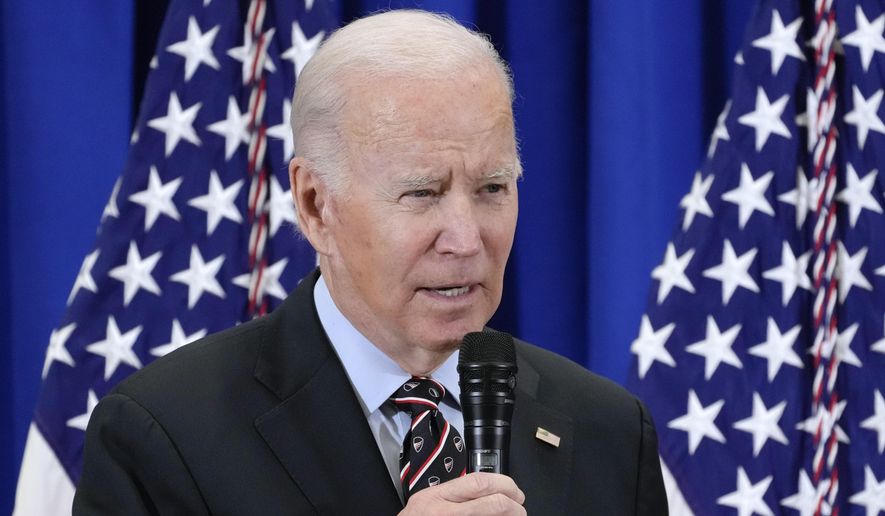President Biden’s commitment to provide billions of dollars per year in international climate aid for poor countries to mitigate the effects of climate change has largely dried up.
Only $1 billion of the $11.4 billion he pledged for foreign climate programs annually by 2024 — or less than 10% — is included in a bipartisan $1.7 trillion government funding package that Congress must pass by Friday to avoid a shutdown, delivering another gut punch to Mr. Biden’s green agenda.
No money was included for the United Nations Green Climate Fund, for which Mr. Biden requested $1.6 billion, that helps developing countries address climate impacts and switch to clean energy. The U.N. fund is part of an endeavor for wealthy nations to contribute $100 million each year in climate reparations that has yet to come to fruition.
The failure to secure more international funding under a Democratic Congress underscores the abysmal chances it will occur soon, given Republicans taking control of the House.
The latest setback to Mr. Biden’s climate priorities comes just weeks after pledging at an annual U.N. climate conference in Egypt that the U.S. was “putting our money where our mouth is” back home in order “to strengthen accountability for climate risk and resilience.”
“The climate crisis is hitting hardest those countries and communities that have the fewest resources to respond and to recover,” he said last month at the U.N. Conference of the Parties, known this year as COP27. “I am going to fight to see that this and our other climate objectives are fully funded.”
The White House did not respond to a request for comment.
Democrats and environmentalists, meanwhile, fumed over the funding shortfall.
“Congress just bankrolled an $857 billion defense bill but failed to provide a single penny to meet our commitments to the Green Climate Fund — a step that would truly help us defend our country and our planet from chaos and instability,” said Sen. Ed Markey, Massachusetts Democrat.
Jake Schmidt of the green advocacy group Natural Resources Defense Council described the lack of funding as “a failure for international climate finance.”
“The U.S. invests less money for international climate finance than Spain, who has an economy 16 times smaller,” he said. “This will damage the ability of the U.S. to spur greater climate action outside its borders and continue to put the most vulnerable on the front lines of climate damage. The U.S. must do better if it wants to be a climate leader.”
Forced to strike a deal with Senate Republicans to achieve enough votes to overcome a 60-vote threshold and avert a government shutdown, Democrats’ leverage was limited, even with control of Congress.
The roughly $1 billion for international climate aid is divided into several tranches, including $260 million for clean energy programs, $385 for biodiversity conservation programs, $270 million for adaptation programs and $125 billion for the Clean Technology Fund for clean energy in developing countries.
Only one initiative that falls under international climate finance saw an increase in funding. The Global Environment Facility, an environmental fund that assists projects in developing countries, will receive an additional $900,000, bringing its total funding to just over $150 million.
The Union of Concerned Scientists (UCS), a nonprofit science advocacy group, described the spending levels as “shameful” and noted that the $900,000 increase presents a real-world cut when factoring inflation.
“Once again, the richest country in the world and the biggest historical contributor to carbon pollution has shown the world it simply doesn’t care to live up to its global climate responsibilities,” said Rachel Cleetus, a policy director and lead economist at UCS.
• Ramsey Touchberry can be reached at rtouchberry@washingtontimes.com.




Please read our comment policy before commenting.